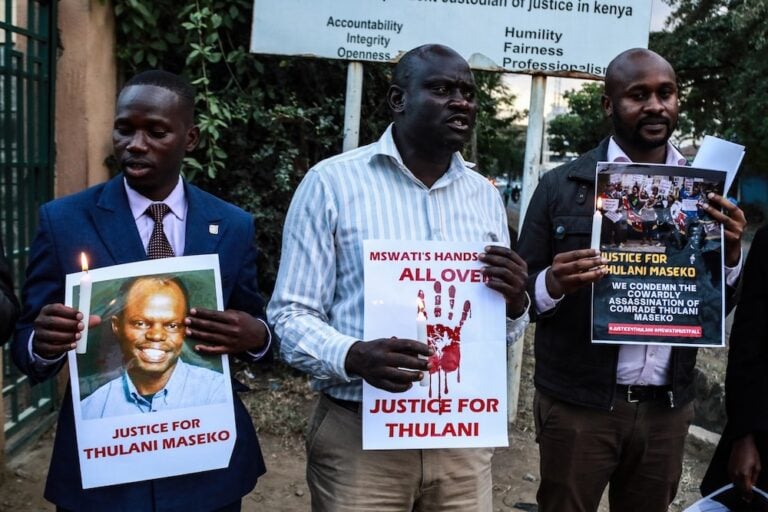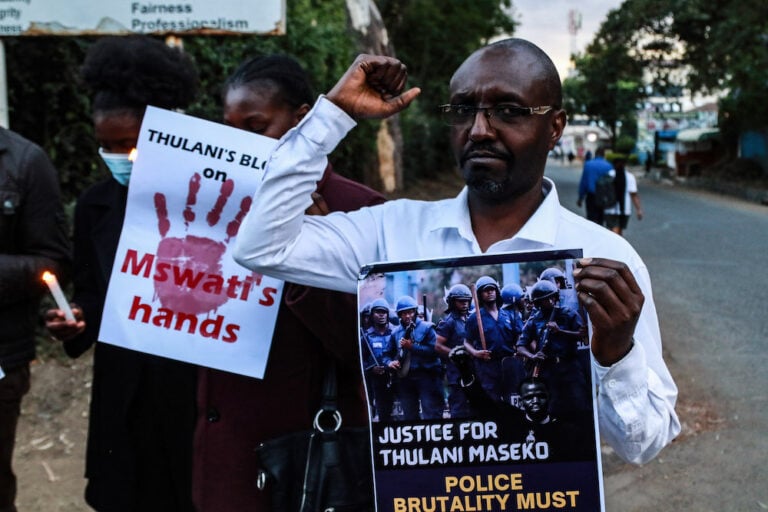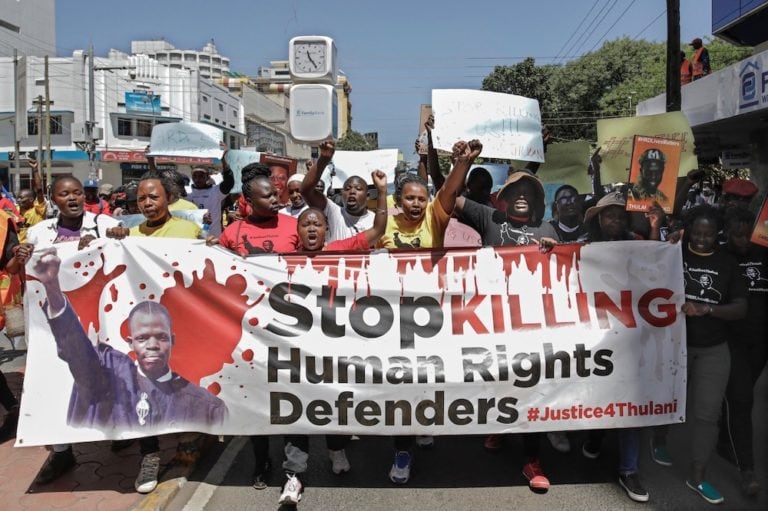(MISA/IFEX) – In a letter to Minister for Public Service and Information Mtonzima Dlamini, MISA-Swaziland’s Chairperson Sphiwe Nkambule and National Director Comfort Mabuza noted that they had been trying to set up an appointment to meet him personally for the last three weeks, but their attempts were not yielding any fruit. Nkambule and Mabuza would […]
(MISA/IFEX) – In a letter to Minister for Public Service and Information Mtonzima Dlamini, MISA-Swaziland’s Chairperson Sphiwe Nkambule and National Director Comfort Mabuza noted that they had been trying to set up an appointment to meet him personally for the last three weeks, but their attempts were not yielding any fruit. Nkambule and Mabuza would welcome the opportunity to sit down with him and deliberate on issues that have become a source of concern regarding the state of the media in the country.
Of great concern are several developments about which Nkambule and Comfort hope the honorable minister will present an official stand from the government:
1. The initial ban on “The Guardian” and “The Nation” magazine through an extraordinary governmental legal notice. The reasons behind the ban are not at all convincing, let alone the fact that this happened in Swaziland, where dialogue is believed to be the key to discussing any problems. This uncalled for action occurred on 3 May 2001, International Press Freedom Day and the 10th Anniversary of the Windhoek Declaration. To MISA, this event proves beyond any reasonable doubt that the government is not at all serious about the country’s obligations to international declarations.
2. The decision and action taken by the government on 4 May to prevent the “The Guardian of Swaziland” newspaper from being published, and later, “The Nation” magazine. The organisation is saddened by the actions of the State Police (CID), who harassed and intimidated journalists working for the two media houses. MISA-Swaziland is aware that the CID collected and interrogated “The Guardian” journalist Thulani Mthethwa, and subjected him to a lengthy interrogation.
3. On World Press Freedom Day, 3 May, police raided, rummaged and searched the offices of “The Guardian”, and on the following day, proceeded to intercept copies of “The Guardian”‘s most recent edition that were being imported and were en route from its printers in South Africa. The police are still withholding this edition of the newspaper. The same applies to “The Nation”‘s June edition.
4. A case where three journalists, Mphilo Dlaminim, Albert Masango and Martin Dlamini, were subpoenaed during an on-going trial of trade union leaders. MISA-Swaziland beleives that this is yet another indication that the authorities still do not understand the implications of such acts.
Recommended Action
Send appeals to the minister for public service and information:
- noting that the international arena frowns upon the unjust treatment of journalists
- condemning these actions in the strongest terms because muzzling the press and curtailing free speech is not at all acceptable and must stop immediately
- noting that these developments and moves made by government are deliberate actions to curtail and hinder the existence of an independent and pluralistic media in Swaziland
- stating that a great deal of money has been invested in an attempt to make these two publications successful. On one hand, the government is encouraging job creation and wooing foreign investment, but on the other hand, it is curtailing the efforts of indigenous Swazis who are helping to create jobs and become self-employed
– calling for him to review his position, because this is not at all healthy for the journalistic profession or the country’s image
Appeals To
Hon. Mtonzima Dlamini (MP)
Minister for Public Service and Information
Mbabane, Swaziland
Please copy appeals to the source if possible.


